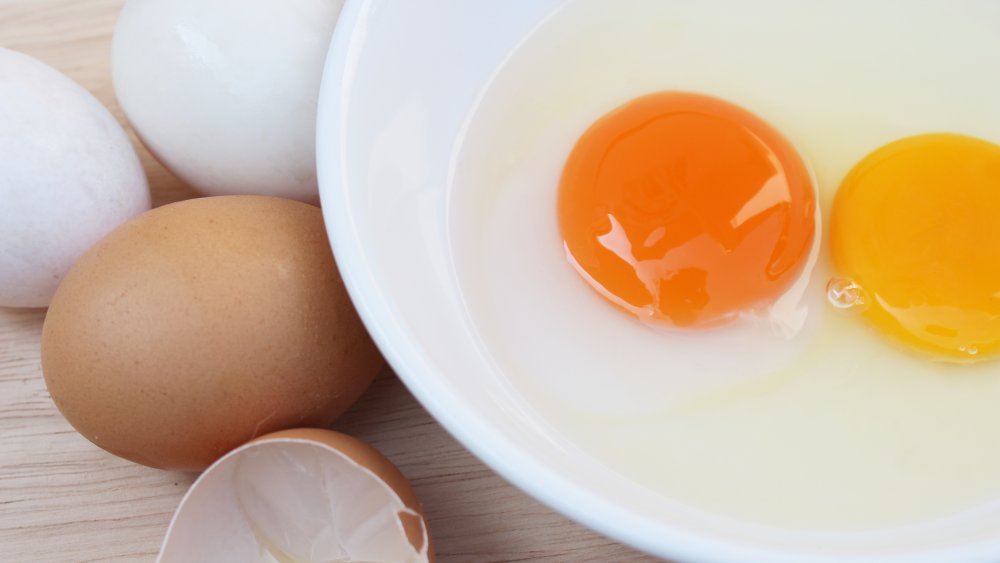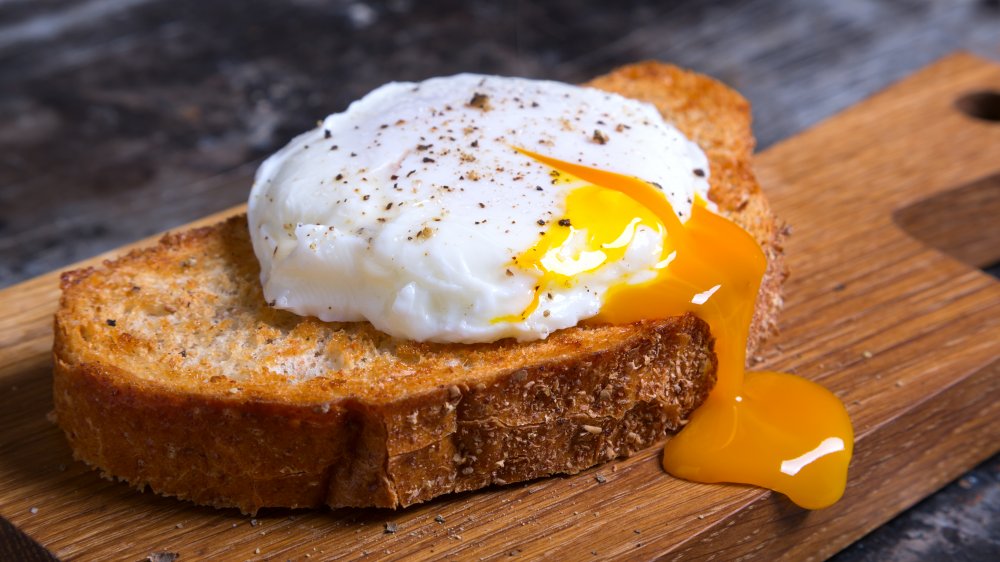The Color Of Your Egg Yolks Actually Does Matter. Here's Why
There are brown eggs, and there are white eggs. And while most eggsperts have told us that there isn't any difference between the two, the story is a bit different where the colors of egg yolks are concerned. Because contrary to popular belief, yolks don't just come in one color – they come in a series of hues and shades that range from pale yellow to a darker orange. Registered nutritionist Bonnie Taub-Di tells Today that "A hen's diet impacts the color of the yolk in her eggs. If she's eating plants that have yellow-orange pigments, then the yolk can take on a more orange color. If her feed is composed of corn or wheat, the color of the yolk could be a more pale color."
The USDA also determined that an egg's nutritional value is affected by the color of its yolk either. All yolks contain iron, vitamins A and D, phosphorous, calcium, thiamine, and riboflavin. But some folks beg to differ.
A yolk is a barometer of the health and diet of the hen that laid it
One study published by the Journal of Food Science found that feeding hens a diet enriched with fish oil, flaxseed, and chia seeds had a big impact on the flavor and color of eggs. Hens which were given feed with more omega-3 fatty acid also produced darker egg yolks with high concentrations of omega-3 fatty acid. "The color of the yolk can actually tell you a great deal about the nutritional content of the egg," dietitian Vanessa Rissetto tells Eat This, Not That. "In general, you want your yolk to be a dark and vibrant orange color. These yolks are typically produced by pasture-raised hens whose diets consist of fresh grass, worms, and grasshoppers. This diet is rich in carotenoids, which gives the yolks the rich orange color." A more vibrantly colored yolk also means the egg tastes richer.
Because 97 percent of eggs come from what HuffPost calls factory farms, it warns that it may be difficult to buy eggs with real deep-colored yolks because most would have been dyed. Instead of going to the supermarket, it suggests you might want to get in touch with a local farmer, who is more likely to produce high-quality eggs. You'll also need to remember that the color of egg yolks change with the seasons, and they do tend to get lighter when it is colder.

